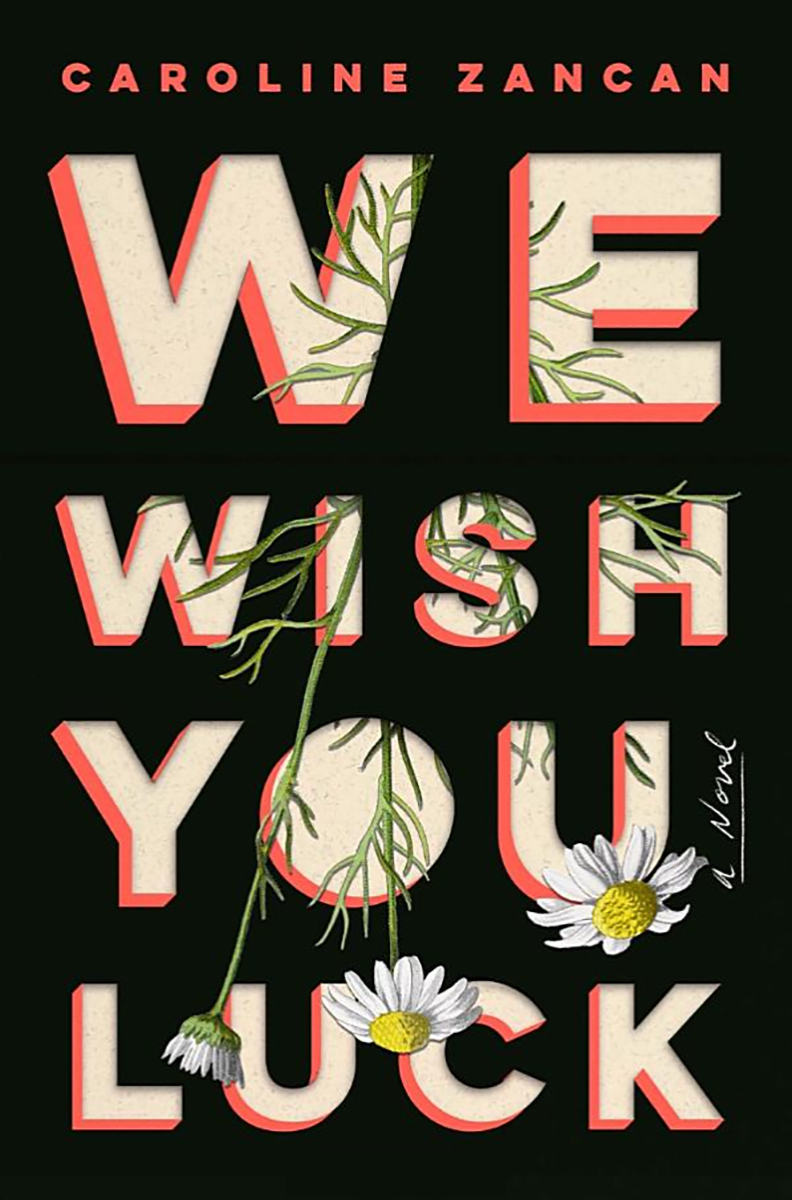For a book so obsessed with the importance of finding the exact right word, it’s hard to find one to describe Caroline Zancan’s We Wish You Luck. “Interesting” is a good one; “odd” might be better.
The novel is promoted as a revenge plot enacted by students in a low-residency master of fine arts (MFA) program against a glamorous new graduate professor, a young woman who rose to fame after her debut novel became a raging success. But the story is not told by the students at the centre of this revenge plot — it’s told by their classmates.
The first thing that makes We Wish You Luck strange is the way it’s told: through a collective “we.” Every event in the story is one that is pieced together by the students its plot doesn’t revolve around, each incident witnessed or overheard by a fallible narrator who reported it to the collective, or even downright speculated. The effect is that of a story being narrated by a sea, which occasionally offers a tangible wave to break on its shores — stating that a particular exchange was witnessed by this particular member of its collective 14 students, or unkindly describing one of its members, still strangely in “we” as it remarks on a member of itself. This curious way of telling the story sets the characters who drive the plot — the brash and intoxicating Leslie and the kind and gifted Hannah — even more on the outside, and makes their motives and actions something that can only ever be speculated on, never known.
While interesting, We Wish You Luck stumbles chiefly in its pacing and its weak characters.
The acts of revenge the book builds toward don’t take place until the third residency term the novel covers, in the final third of the book. We Wish You Luck spends so long laying its groundwork without any urgency or startling bursts of foreshadowing that you begin to forget there is a thrilling plot to be had here, rather than a long essay on MFA programs and anecdotes about its cast of characters and lessons.
And these characters are, largely, only worth telling about in anecdotes. The 14 students narrating this novel only feel real in the sense that they’re mostly caricatures that can be projected onto — which is expected when an author needs to get 14 nobody graduate students onto a page, but still disappointing. It’s obvious which characters Zancan spent time developing: Leslie, Hannah, Jimmy (whose death by suicide incites the revenge plot), the beloved Professor Pearl, and, to a lesser extent, Simone — the professor
revenge is enacted upon, who is only slightly less caricaturish than her students in that the author gifts her with quirks.
Zancan makes the act of distinguishing underdeveloped characters even more difficult by giving them similar names. (Unwise in any piece of fiction, but especially when these names are in the same 17-person graduating class.) Of the 14 members of the “we” narrators, there is both a Penny and Jenny. There is also a Jibs, and a recurring character in a different graduating class named Jiles. We Wish You Luck is rife with J names and L names, leaving a great deal of letters forgotten in favour of making distinguishing between characters as difficult as possible.
As a book for writers, or those whose careers spin around books, the novel is effective; its ruminations on craft and creation, on the precise feeling of reading a truly excellent line or loving a book with all of yourself, are striking. We Wish You Luck is terribly relatable in its descriptions of being a university student, or a writer, but as a novel with a plot perfect for dark academia, a thriller, or even comedy, it falls short on executing that plot effectively. Like many of the students in its graduate program, We Wish You Luck is more promise than excellence.


